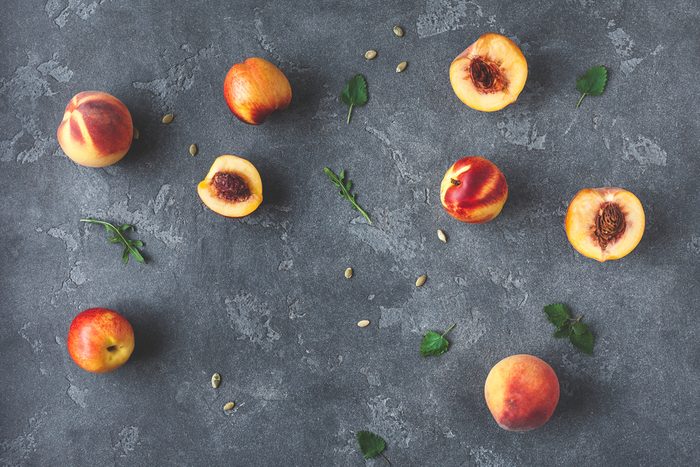
Peaches
In season: July to September
The benefits: This summertime favourite contains vitamin C, and is an excellent source of vitamin B6, niacin, and folate. Peaches are also rich in potassium, which helps maintain healthy blood pressure as well as prevent kidney stones and bone loss. They are high in fibre, too, which aids in both digestive health and colon health.
Try this recipe: Peach, Burrata and Basil Salad
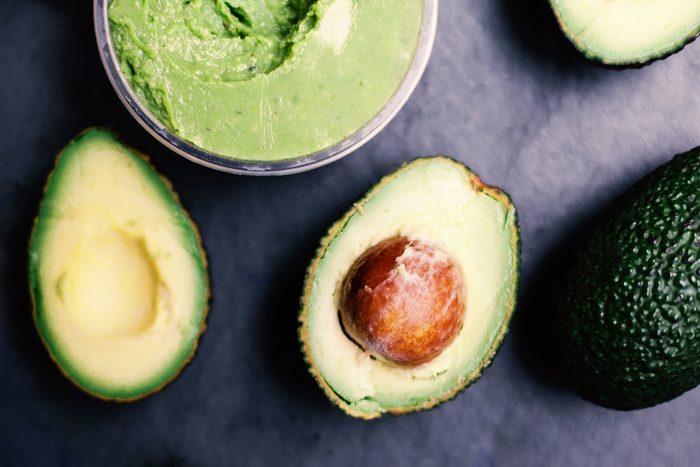
Avocados
In season: August to October
The benefits: Avocados are high in carotenoid antioxidants such as beta-carotene, lutein, and neochrome, all of which help to prevent osteoarthritis and rheumatoid arthritis, as well as improve cardiovascular health, help regulate blood sugar levels, and prevent cancers of the mouth, skin, and prostate gland.
Try this recipe: Chilled Cucumber Avocado Soup

Pineapple
In season: March to July
The benefits: The sweet and tart tropical fruit contains bromelain, an enzyme that improves digestion as well as helps to fight blood clots from forming. Pineapples can also help prevent swelling, a common ailment during the summer months.
Try this recipe: Honey Lime Grilled Shrimp And Pineapple Skewers

Beets
In season: June to November
The benefits: The deep-hued root vegetable contains phytonutrients such as the pigment betacyanin and are high in fibre and beta-carotene. Beets are prized as being a good source of folate, which helps to guard against birth defects, colon cancer and osteoporosis.
Try this recipe: Beet and Strawberry Smoothie

Eggplant
In season: August to October
The benefits: The aubergine is a high-tryptophan food, an essential amino acid that helps to regulate appetite, improves sleep quality, and elevates your mood. Eggplants are also good for cardiovascular health as they help to improve blood flow in the blood vessels. Even the skin of the eggplant is good for you—it’s loaded with nasunin, a potent antioxidant that has been shown to protect cell membranes from damage as well as inhibit the spread of cancer.
Try this recipe: Miso-Glazed Baked Salmon and Eggplant
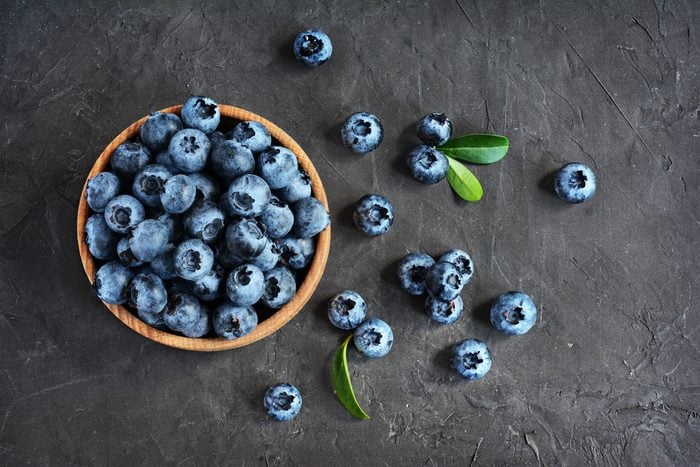
Blueberries
In season: July to September
The benefits: Though tiny, the benefits of the blueberry are enormous. Blueberries are high in anthocyanins, the antioxidant pigments that give blueberries their deep rich colour. Anthocyanins and other phytonutrients contained in blueberries help to fight anti-inflammatory issues, help improve brain function, enhance mood, and help combat cancer cells.
Try this recipe: Dutch Baby with Stewed Rosemary Blueberries

Red bell peppers
In season: July to October
The benefits: The sweet and crunchy veggie is extremely low in calories (about 25 calories per cup) and is also one of the healthiest peppers. Red bell peppers contain 11 times more beta-carotene than its green counterpart and they provide 240 percent of the recommended daily value of vitamin C.
Try this recipe: Vegetarian Quinoa Stuffed Peppers
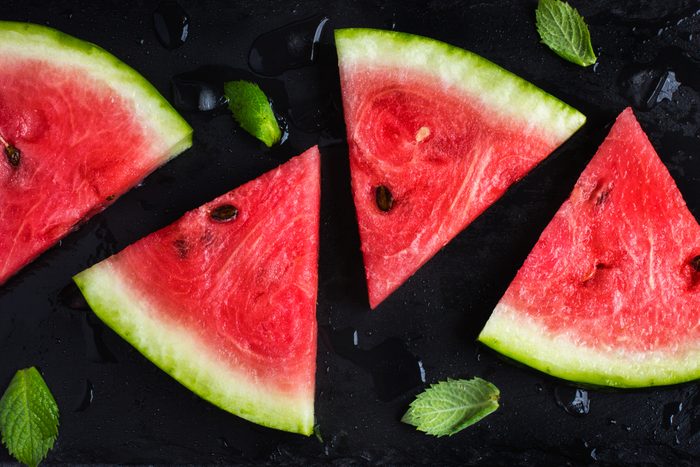
Watermelon
In season: May to August
The benefits: Watermelons are made up of 92 percent water and six percent sugar, making them the perfect hydrating food of the summer. The natural sugar found in watermelons helps to maintain electrolytes that are lost by excessive sweating. Not only that-watermelons are also packed with vitamins like vitamins A and C, which respectively help with eye health and boost the immune system.
Try this recipe: Herbed Watermelon Cups
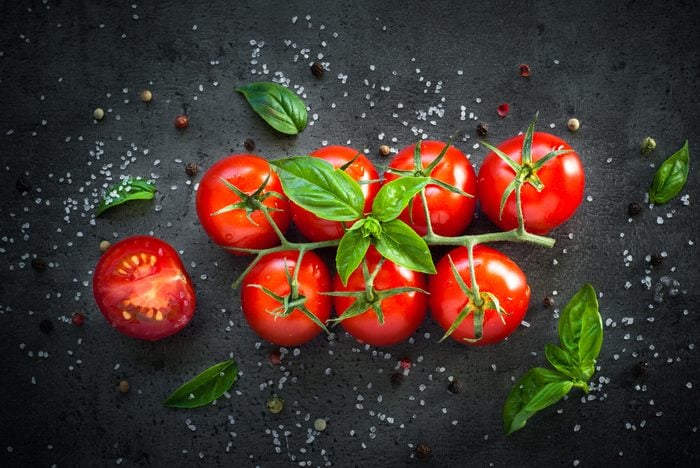
Tomatoes
In season: July to October
The benefits: When it comes to tomatoes, the redder the better—the antioxidant lycopene is highest in very red tomatoes. Lycopene has been proven to have numerous health benefits, including protecting the skin from harmful UV rays, helping to slow down the process of arterial aging, as well as fight heart disease, stroke, memory loss, and even impotence in men.
Try this recipe: Roasted Fennel & Tomato Soup with Dukkah

Grapes
In season: August to October
The benefits: Grapes are rich in phytonutrients such as flavanols, phenolic acids, and carotenoids to name a few, as well as antioxidant nutrients such as vitamin C and manganese. Eat these low-cal sweet treats often and you’ll experience a range of benefits such as protection against certain types of cancer, better blood pressure regulation, and improved cognitive health.
Try this recipe: Lentil-Spinach Salad With Feta and Grapes
Next: Trying to Drink Less? These Tasty Summer Mocktails Make it Easy
